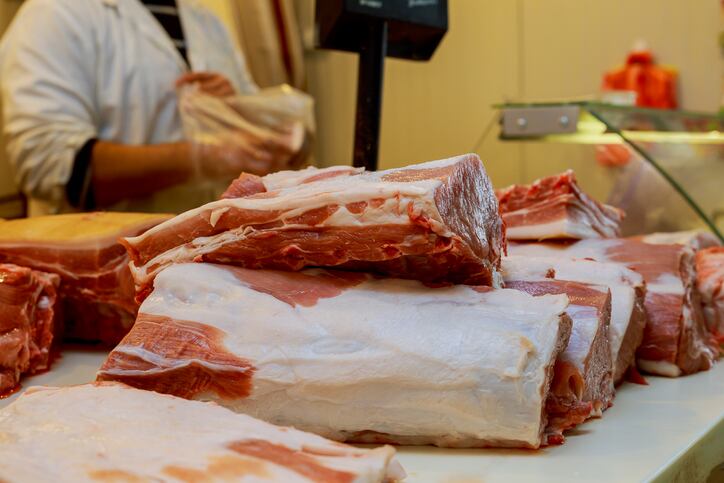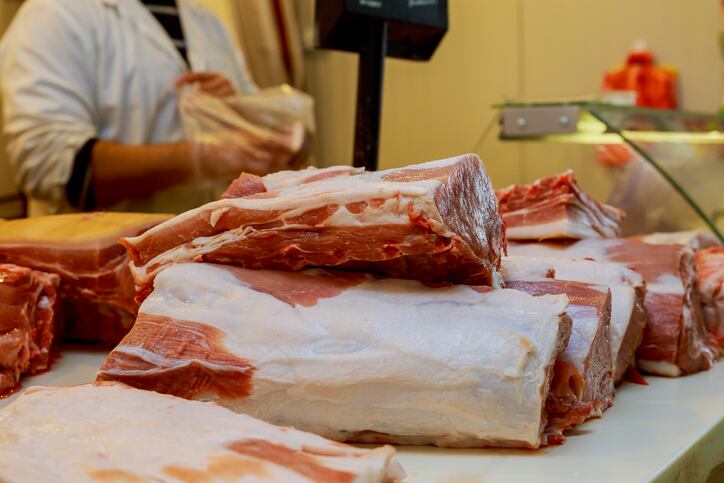In the lawsuit* filed April 23, plaintiff Jane Doe claimed Smithfield “continues to operate its plant in Milan, Missouri, in a manner that contributes to the spread of disease,” citing insufficient personal protective equipment, working practices requiring staff to work shoulder to shoulder, lack of time for handwashing and other practices she claims endanger employees – allegations Smithfield said “grossly misrepresent the substantial safety measures” it has implemented at the plant.
The suit did not seek monetary damages, but requested an injunction “to force Smithfield to change its practices such that if it continues to operate, it must comply with, at a bare minimum, CDC guidance, the orders of state public health officials, and additional protective measures that public and occupational health experts deem necessary based on the particular structure and operation of the Milan plant.”
In a motion to dismiss the case, Smithfield said the court “need not—and should not—wade into this area, and put itself in the position of policing workplace safety and directing state public health policy at the behest of a private plaintiff.” It also noted that it was complying with Joint Meat Processing Guidance issued by the CDC and OSHA, which President Trump cited in an executive order issued on April 28.
Judge: Smithfield has significantly stepped up safety measures at the plant since case was filed
In an order dismissing the case without prejudice, Judge Greg Kays at the US District Court for the western direct of Missouri, said: “In sum, the Court holds that the issue of Smithfield’s compliance with OSHA’s guidelines and regulations falls squarely within OSHA/USDA’s jurisdiction.”
The Occupational Safety and Health Administration (OSHA) has already requested information about safety measures at the plant, he added, and should it fail to act quickly on that information, the plaintiffs “may receive emergency relief through OSHA’s statutory framework.”
On a more practical level, he added, Smithfield has significantly stepped up safety measures at the plant, where there are currently no confirmed cases of COVID-19: “It appears that some of the information in her [the anonymous plaintiff’s] declaration is no longer accurate due to recent changes in the plant’s policies and procedures. For example, although her declaration may be correct that Smithfield initially told workers they would receive only one mask per week, this policy has been superseded… workers are now given masks every day.”
He also noted that “at least one of her [the plaintiff’s] statements—that Smithfield has increased the line speed at the plant during the pandemic—is contradicted by other, more persuasive evidence.”
COVID-19 and employer liability
The issue of liability in the food industry – a segment of the economy that has kept going as many other industries have been forced to hit 'pause' – has become particularly pertinent in light of the President’s April 28 executive order, which has generated headlines along the lines of ‘Trump compels meat plants to stay open' (although it does not state that plants must remain open if workers are sick).
The order makes no reference to meat plants’ legal liability should workers claim they contracted COVID-19 due to employer negligence, although the president told reporters earlier in the week that it would “solve any liability problems" firms might have.
An April 28 announcement from OSHA and the Solicitor of Labor does not clarify whether the President’s order shields firms from any liability, but did note that “courts often consider compliance with OSHA standards and guidance as evidence in an employer’s favor in litigation.”
A USDA spokesperson told FoodNavigator-USA: "By clarifying the standard they must meet, companies subject to the order may take the actions called for in the joint CDC/OSHA guidance and thereby reduce their risk of being found legally liable." (Read more HERE)
*The case is Rural Community Worker's Alliance et al. v. Smithfield Foods Inc. et al., case number 5:20-cv-06063, in the U.S. District Court for the Western District of Missouri.
Further reading:
Meat supplies for retail grocery stores could shrink by nearly 30% this Memorial Day, leading to retail pork and beef price inflation as high as 20% relative to prices last year, according to a new report by CoBank.
Before entering the Milan plant, Smithfield now requires all employees to undergo thermal screening. If they exhibit one primary symptom or two secondary symptoms of COVID-19, it provides them with instructions for next steps, including directions to quarantine and call their physician for guidance, and sends them home for 14 days of paid leave or until the individual receives a negative test result.
Employees with underlying health concerns—verified by a doctor—that place them at a higher risk of COVID-19 are given 14 days of paid leave and then are shifted to short-term disability leave.
While quarantining as a result of COVID-19 symptoms, employees must complete a questionnaire naming co-workers they have closely contacted in the two days before experiencing symptoms. If the employee tests positive, Smithfield notifies and screens the close contacts.
If employees miss work as a result of COVID-related symptoms, they do not receive attendance points and remain eligible for Smithfield’s Responsibility Bonus ($500), regardless of whether they provide a doctor’s or nurse’s note, said Judge Kay.
According to Kay, Smithfield has eliminated co-pays for COVID-related testing and treatment and assigned a nurse and a health-and-safety clerk to perform checks throughout the plant.


